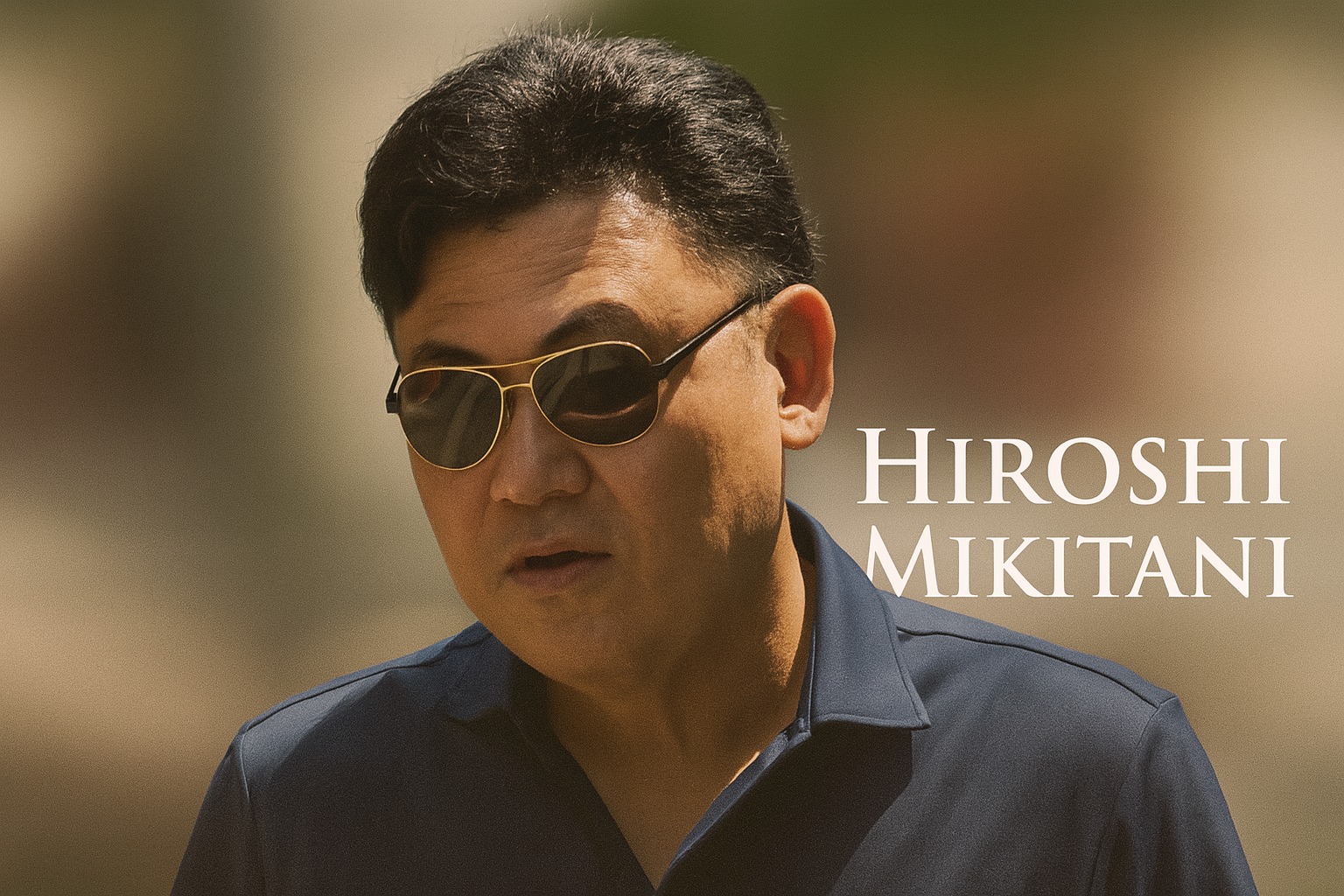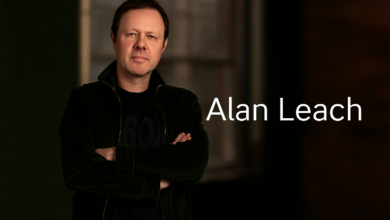Hiroshi Mikitani: The Visionary Powering Japan’s Digital Revolution
From Banking Halls to E-Commerce Empire — The Inspiring Story Behind Rakuten’s Billionaire Founder

Hiroshi Mikitani: The Digital Samurai of Japan
Hiroshi Mikitani is more than just a tech entrepreneur; he is a pioneering force reshaping Japan’s economic future. As the founder and CEO of Rakuten Inc., he stands among the most influential business figures in Asia. Driven by his passion for innovation, Mikitani built Rakuten from a small startup into a global internet services powerhouse. With a strategic vision rooted in globalization and digital transformation, he not only transformed e-commerce in Japan but helped define what a modern Japanese corporation can look like.
Mikitani’s journey is a story of intellect, resilience, and cultural boldness. From his early exposure to international ideas to bold decisions like mandating English at Rakuten, he continuously challenged norms. This biography explores every facet of his life—early upbringing, academic achievements, career trajectory, entrepreneurial philosophy, and philanthropic contributions.
Quick Bio
| Full Name | Hiroshi Mikitani |
|---|---|
| Date of Birth | March 11, 1965 |
| Place of Birth | Kobe, Hyōgo Prefecture, Japan |
| Nationality | Japanese |
| Ethnicity | Japanese |
| Education | Hitotsubashi University, Harvard Business School |
| Occupation | Founder & CEO of Rakuten Inc. |
| Spouse | Haruko Mikitani |
| Children | Two |
| Parents | Ryōichi Mikitani (father), Setsuko (mother) |
| Net Worth | Estimated ~$4 Billion (2025) |
| Known For | Rakuten, “Englishnization”, JANE |
Early Life and Family Background
Hiroshi Mikitani was born on March 11, 1965, in Kobe, Japan. He came from a family of distinguished intellect and ambition. His father, Ryōichi Mikitani, was an economics professor and Japan’s first Fulbright Scholar. His mother, Setsuko, had a career in international trade and studied in the United States. These strong academic and international influences would shape Hiroshi’s worldview from a young age.
During his childhood, Mikitani spent two years in the U.S. while his father was teaching at Yale University. This experience helped him gain an appreciation for Western thinking and planted the seeds of the global mindset he would adopt in his future business ventures. After returning to Japan, he pursued his studies with exceptional focus.
Education and Formative Years
Mikitani enrolled at Hitotsubashi University, one of Japan’s top institutions for commerce, and graduated with a Bachelor of Commerce degree in 1988. He then began his professional journey at the Industrial Bank of Japan, where he worked in corporate finance and investment banking. However, Mikitani’s hunger for knowledge led him abroad once again.
In 1991, he was accepted into Harvard Business School. He completed his MBA in 1993, gaining global insights and forming connections that would later influence his business strategy. Harvard exposed him to entrepreneurial thinking and technology-led transformation, which would become the foundation of his own ventures.
Start of Career and Crimson Group
Returning to Japan after Harvard, Mikitani rejoined the Industrial Bank of Japan but soon felt the urge to start something of his own. In 1995, the devastating Kobe earthquake deeply impacted his outlook on life. Determined to make a difference, he resigned from the bank in 1996 and founded Crimson Group, a consulting firm that marked the beginning of his entrepreneurial journey.
Crimson Group provided the foundation for future projects, and it was during this time that the idea for an online marketplace took form. Inspired by Amazon and eBay, Mikitani believed Japan needed a digital commerce platform that supported small businesses, which were being left behind by traditional retail chains.
The Birth and Rise of Rakuten
In 1997, with just $250,000 in capital, Hiroshi Mikitani launched Rakuten Ichiba, a Japanese e-commerce marketplace. Initially hosting 13 vendors and a six-person team, Rakuten quickly grew into one of Japan’s most recognized internet brands. The company was rebranded as Rakuten Inc. in 1999 and went public in 2000.
What set Rakuten apart was its philosophy of empowering merchants. Unlike Amazon, which sold its own products, Rakuten allowed vendors to build their own online storefronts and control customer relationships. This unique approach fostered loyalty among partners and consumers alike, propelling Rakuten’s growth.
Global Expansion and Englishnization
By 2010, Mikitani had set his sights on making Rakuten a global player. He led a wave of international acquisitions, including Buy.com (USA), PriceMinister (France), Kobo (Canada), and messaging app Viber. He also made strategic investments in Pinterest and Lyft.
To support this expansion, Mikitani introduced the now-famous “Englishnization” policy. He mandated that English would become the company’s official language within two years. While initially controversial, this bold move enabled Rakuten to integrate teams across borders and strengthened its global culture.
Business Ventures Beyond E-Commerce
Hiroshi Mikitani’s influence extends far beyond retail. In 2004, he founded the Tohoku Rakuten Golden Eagles baseball team, offering hope and rebuilding opportunities in a region struck by natural disaster. The team won the Japan Series in 2013, marking a symbolic victory.
He also acquired the Vissel Kobe football club and brought global stars like Andrés Iniesta to Japan. In 2017, he co-founded Kosmos Holding with Gerard Piqué, investing in sports assets like the Davis Cup and FC Andorra. His interest in culture is reflected in his role as Chairman of the Tokyo Philharmonic Orchestra.
Philanthropy, Advocacy, and Leadership
In 2011, Mikitani resigned from Keidanren, Japan’s top business federation, citing its resistance to reform. He later launched the Japan Association of New Economy (JANE) to promote startup ecosystems and digital modernization.
A firm believer in civic duty, Mikitani donated ¥1 billion (approx. $8.7 million) to Ukraine in 2022 during the Russian invasion. His donation was one of the largest from a private Japanese citizen, emphasizing his global values and humanistic approach to leadership.
Net Worth and Financial Profile
As of 2025, Hiroshi Mikitani’s estimated net worth is approximately $4 billion. His wealth primarily comes from his significant stake in Rakuten and other private investments. While his salary remains undisclosed, it is known that his financial influence is bolstered by long-term equity and business diversification.
Mikitani continues to reinvest in technology, media, sports, and financial services. His ventures span across continents and industries, reflecting his philosophy of creating ecosystems rather than isolated services.
Legacy and Recent Developments
In 2024, Mikitani was invited to the White House for a state dinner hosted by President Biden, honoring Japan–U.S. relations. He remains an active voice in economic policy, innovation, and global cooperation. His legacy is that of a digital pioneer who challenged conventions and empowered both consumers and businesses.
Through books like The Power to Compete and Marketplace 3.0, Mikitani continues to share his vision with the world. He has laid the groundwork for Japan’s next generation of entrepreneurs and continues to lead by example.
Conclusion
Hiroshi Mikitani’s legacy is one of vision, transformation, and fearless innovation. By founding Rakuten and expanding it into a global force, he redefined what it means to lead in the digital age. His unconventional strategies—such as Englishnization—challenged the status quo and set a precedent for Japanese companies aiming to thrive on the world stage.
Beyond business, Mikitani’s contributions to culture, sports, and global philanthropy reflect his multidimensional impact. As a leader, author, reformist, and global citizen, he continues to influence not only how we shop and connect but also how businesses evolve and lead with purpose. His story serves as a blueprint for aspiring entrepreneurs who believe in building bold, borderless futures.
Frequently Asked Questions (FAQ)
What is Hiroshi Mikitani known for?
He is best known as the founder and CEO of Rakuten, a global e-commerce and technology company based in Japan.
What is “Englishnization” at Rakuten?
It’s a policy introduced by Mikitani in 2010 to make English the official language of Rakuten’s internal operations.
How did Hiroshi Mikitani start Rakuten?
He launched Rakuten Ichiba in 1997 with $250,000 and 13 vendors, aiming to help small businesses sell online.
What other businesses does Mikitani own?
He owns or co-owns Vissel Kobe FC, the Rakuten Golden Eagles baseball team, and Kosmos Holding.
How much is Hiroshi Mikitani worth?
As of 2025, his estimated net worth is around $4 billion, mainly from Rakuten shares and private investments.



